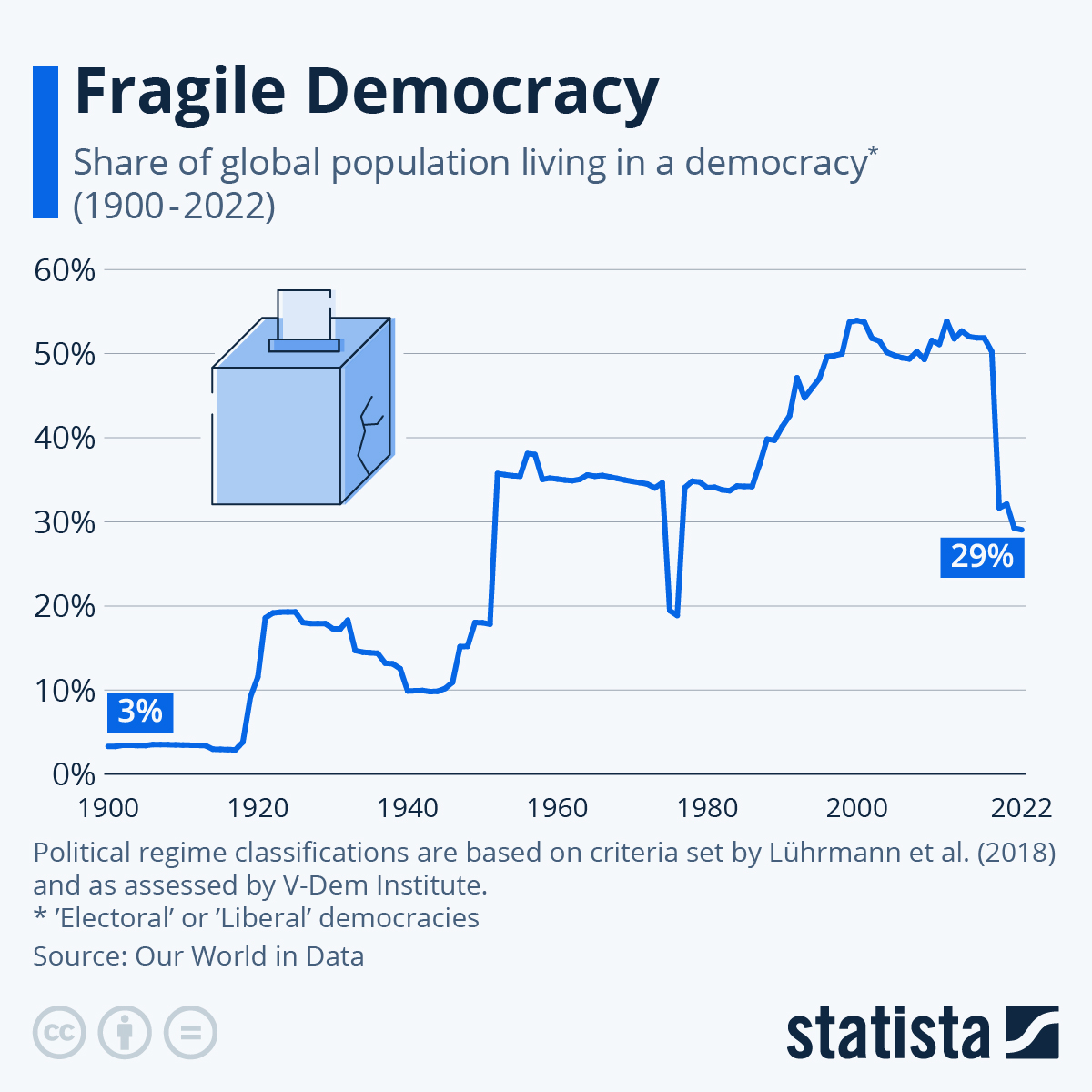September 15 is the International Day of Democracy and this year, the theme is “Empowering the next generation”. According to the UN, this is intended to place focus "on young people’s essential role in advancing democracy and ensuring that their voices are included in the decisions that have a profound impact on their world."
This infographic, based on an analysis collated by Our World in Data highlights just how fragile democracy can be. The share of the world living in either an electoral or liberal democracy was at its highest in the year 2000 when the figure was at 54 percent. This took a steep dive in 2019, dropping from 50 percent down to just 32. While the fragility of democracy is also plain to see elsewhere in the chart, this is the most dramatic example over the assessed period.
The main cause of this decrease was India and its downgrade by Freedom House to a 'partially free democracy' and to an 'electoral autocracy' by the V-Dem Institute at the University of Gothenburg since Modi's win in the country's 2019 election. The latter downgrade was justified by the alleged "increased pressure on human rights organizations, rising intimidation of academics and journalists, and a spate of bigoted attacks, including lynchings, aimed at Muslims" leading to a "deterioration of political rights and civil liberties".
The rise of democracy has been one of the greatest collective human achievements of the last century, allowing large shares of the world's population to live in relative freedom and have the ability to alter the politics and society of their country. Has this expansion already peaked though?





















